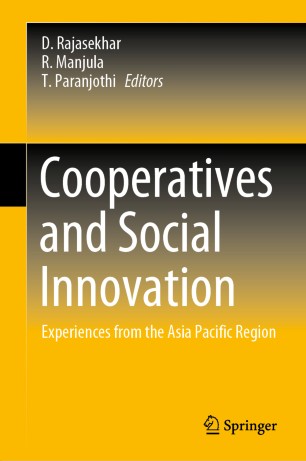

Most ebook files are in PDF format, so you can easily read them using various software such as Foxit Reader or directly on the Google Chrome browser.
Some ebook files are released by publishers in other formats such as .awz, .mobi, .epub, .fb2, etc. You may need to install specific software to read these formats on mobile/PC, such as Calibre.
Please read the tutorial at this link: https://ebookbell.com/faq
We offer FREE conversion to the popular formats you request; however, this may take some time. Therefore, right after payment, please email us, and we will try to provide the service as quickly as possible.
For some exceptional file formats or broken links (if any), please refrain from opening any disputes. Instead, email us first, and we will try to assist within a maximum of 6 hours.
EbookBell Team

4.1
10 reviewsThis book discusses social innovations by cooperatives from the Asia and Pacific region. Social innovations emerge when the state and market in developing countries find it difficult to solve problems such as poverty, hunger, ill health, poor education systems, inadequate drinking water and poor sanitation. These countries also face barriers to economic growth such as climate change, poor governance, unequal opportunities and social exclusion. This volume therefore addresses the following questions. What are the distinctive features of social innovations by cooperatives? How social innovations bring in changes in the process and outcome of development?
After presenting theories of social innovation and a critical review of cooperatives and social innovation, the book presents 15 chapters on social innovations by cooperatives in the Asia Pacific region. These social innovations are related to health insurance, community based tourism, disaster response, climate smart agriculture, use of social media for youth empowerment, training for the emergence of second-line leaders in cooperatives, social inclusion through innovative finance, profitable marketing of organic produce to strengthen economic status of small farmers, digital auction and value addition for income security of farmer members, collaboration between cooperative members and workers for the mutual benefit, worker cooperatives, women leadership and participation, building union-cooperative partnership in finance and rating of cooperatives to promote transparency and accountability. A chapter on innovative services of cooperatives during the time of Covid19 is also included.
This volume will be quite significant for co-operators, researchers, teachers, practitioners and policy-makers at the global level. The theme is relevant for international development community and national cooperatives with concern for their communities, which is the seventh cooperative principle of International Cooperative Alliance and the Sustainable Development Goal of the UN.